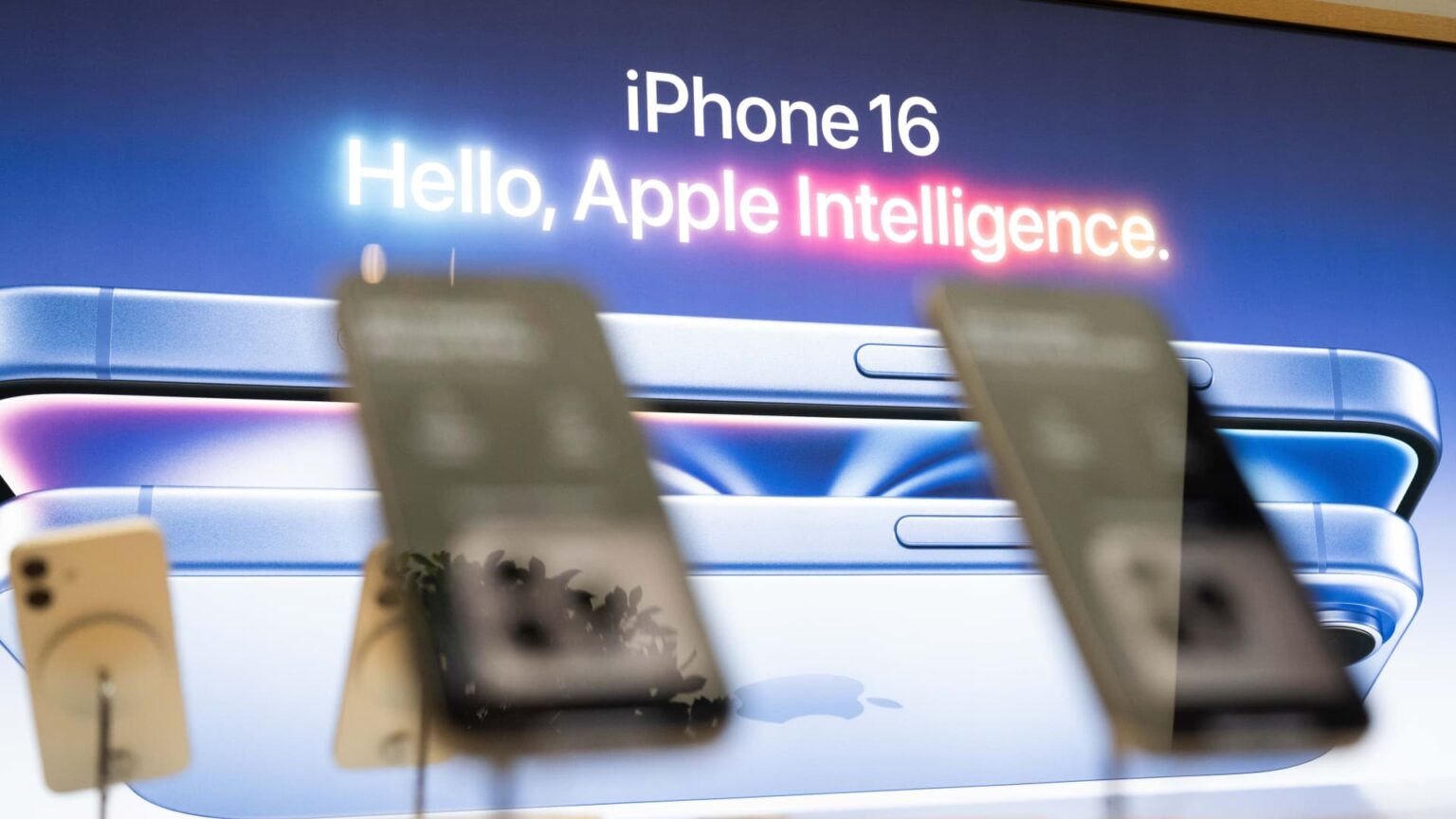Apple iPhone 16s lined up
An advertising watchdog said Tuesday that Apple went too far with marketing that touted the availability of Apple Intelligence features that weren’t released when the ads were broadcast.
The National Advertising Division, a non-profit focused on “truth in advertising,” said that following an inquiry from the organization about Siri improvements, Apple told it that it would permanently discontinue a TV ad called “More Personal Siri” that focused on a big AI improvement to Siri.
That ad premiered in September and promoted the iPhone 16 with unreleased features. In March, Apple said it would delay the release of those features to “the coming year.”
“NAD recommended that Apple avoid conveying the message that features are available when they are not,” the group said.
Apple didn’t respond to a request for comment. The company told NAD it disagreed with the findings but would follow the group’s recommendations, the non-profit said.
NAD’s decision is the latest blow to Apple’s reputation with artificial intelligence technology and its struggles to market the iPhone 16’s AI features.
Apple is also facing class-action lawsuits over those Apple Intelligence ads, and the company in January turned off its AI summary feature for news apps after users and the BBC discovered that the feature at times twisted headlines to display false information.
Besides pulling the ad, which featured “The Last of Us” actor Bella Ramsey, off of YouTube in March, Apple has made other changes to its marketing.
Apple’s website no longer says Apple Intelligence is “available now” — the tagline now reads “AI for the rest of us.” Apple has also begun running a new ad focused on another Apple Intelligence feature called “Clean Up” that can edit objects or people out of photo’s backgrounds.
The company in June unveiled Apple Intelligence, its marketing term for its suite of AI features. Apple’s newest iPhones, the company said at the time, would be able to access image generators, custom emojis, intelligently-summarized notifications, and eventually, a vastly improved Siri.
When the iPhone 16 was released in September, Apple Intelligence was featured on television ads, billboards and the company’s website as a key reason to buy the iPhone 16. But the AI features rolled out in waves over the course of months as software updates, even while Apple touted the features.
Apple did not make ‘adequate’ disclosures
NAD’s decision is focused on Apple promoting features that weren’t available to the public at the time of the ads.
“Apple did not adequately disclose that the features were not available and reasonable consumers could take away the message that these features were available at the time these claims were first made, which they were not,” the decision said.
The NAD is part of BBB National Programs, a non-profit that offers programs to various industries so they can regulate themselves. Companies that participate in the voluntary program agree to submit to and participate in the NAD’s evaluation process.
At the end of a decision, NAD usually decides whether specific advertising claims were supported by facts. If they are unsupported, NAD pushes for changes. The Apple case was brought by the NAD itself, said Phyllis Marcus, NAD vice president.
“Apple participated and agreed to take our decisions and recommendations into account,” said Phyllis Marcus, the VP of National Advertising Division.
The majority of NAD cases are brought by one company complaining about a rival’s ads, but NAD is starting to look at claims around AI tools, Marcus said. The Apple decision signals an increased emphasis by regulators and other oversight organizations to scrutinize AI claims.
In its report, NAD found that some key Apple Intelligence features — such as image generation and ChatGPT integration — weren’t available at launch despite being advertised as “available now.”
The company’s claims around Apple Intelligence are now accurate, NAD said. It added that Apple had made changes to its marketing materials about the Siri feature that “adequately” communicated the status of the delayed feature.
Most Apple Intelligence features announced last June have launched and are turned on by default on new iPhones in the U.S.
Investors are looking for signs that Apple Intelligence could boost Apple stock by driving more iPhone upgrades than usual.
About 80% of U.S. users with supported iPhone have tried the features, and more than 50% of current iPhone owners who are looking to upgrade say it will be very important to have Apple Intelligence on their next device, according to results from a Morgan Stanley survey published Tuesday.
Over half of respondents said they would pay $10 or more per month for the feature, the note said, suggesting that consumers see value in the software.
WATCH: Apple has done so much to create new jobs here, just not manufacturing jobs, says Jim Cramer

https://www.cnbc.com/2025/04/23/apple-ai-ads-went-too-far-watchdog-says.html


